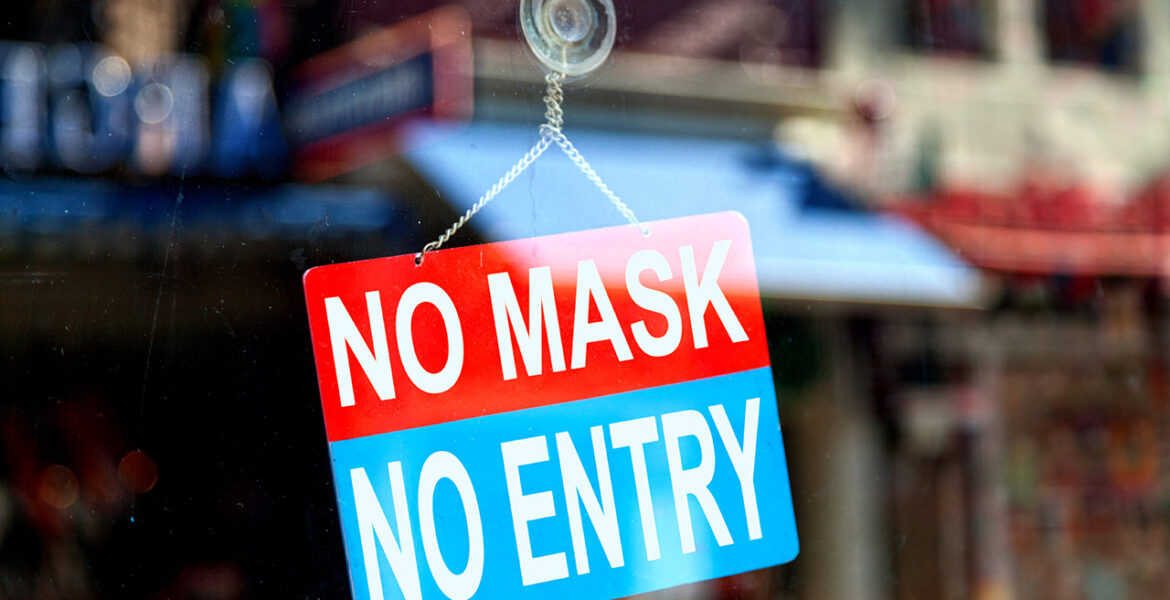COVID-19 caused immense grief and is not something to be weaponised. Therefore, if the public health risk of the erstwhile scourge has been alleviated, the matter must rest, writes LEBANI MAZHANI
It has been very disappointing to see notices that ignore the latest advice from the Ministry of Health, which made the wearing of masks in Botswana an optional exercise. The lifting of protocols is following from the fact that the risks of COVID-19 as a public health threat have been mitigated. These notices are displayed in schools and courtrooms boldly stating ‘NO MASK, NO ENTRY.’
Public health measure
The mask mandate was implemented as a public health measure in the wake of a pandemic unlike any we had seen before. The limitation was an accepted infringement on the freedom of expression necessitated by the greater good of trying to preserve lives while the global scientific community raced to find a vaccine.
After unprecedented success with vaccination uptake rates, we have come to a point where we can look back at COVID-19, at least for now, and breathe a sigh of relief. Scientists worldwide have advised governments that the risks of COVID-19 are now outweighed by the necessity of restoring peoples’ fundamental rights.
What is important to achieve success in public health measures is to ensure compliance through communication that is consistent, easy to understand, and inclusive. We also need to inspire confidence in the advice we are receiving from experts (scientists and public health specialists).
Instructing the wearing of masks by ‘order of court’ is destructive to the purpose. It is even more disappointing to find such a notice in a judicial room where compliance with the law of the land must be exemplary.
The right to choose
The letter issued by the Ministry of Health which lifted the compulsory requirement to wear masks did not stop masks being worn by those who choose to do so. The right to choose is so often understated and overlooked. Autonomous individuals enjoy the right to make decisions for their own bodies, and the exercise of such choice must be encouraged. Those who choose to wear masks can continue to do so. Those who do not must similarly have their choice respected and not be denied access to services in consequence of exercising their rights.
We need to stop using the law as a combative tool and start sharing ownership of it. COVID-19 caused immense grief and it is not something to be weaponised. People don’t need reminding of the devastation it has caused. But if the public health risk has been alleviated, the matter must rest.
Children bear the least personal risk of dying or becoming seriously ill from COVID-19, and the wearing of masks by them has always been a contentious issue for healthcare specialists. Their quality of education and social interaction has been extremely limited by COVID-19 measures, mostly in an effort to save the adults they live with. It has always been a big task to mount on the shoulders of children, and in many countries, children under the age of 16 were never required to wear masks. It is also no secret that safe and hygienic mask wearing is severely compromised where children are concerned.
For the sake of children
There is a primary school in Gaborone which has issued a notice that notwithstanding the Ministry of Health advice, children in their school must continue to wear masks compulsorily. I find it problematic that vulnerable people such as children and those trying to access the most fundamental of services such as judicial access are the ones finding themselves holding the short end of the stick.
I appeal to the Ministry of Health to issue follow-up advice clarifying the matter and discouraging the weaponising and abuse of protocols which were meant only to save lives as an absolute necessity. If we antagonise people today, we will cry wolf in future when we need collective compliance and unity in the wake of another disaster. This is a democratic country, and the democratic values that we have so often prided ourselves in must be restored with urgency.

